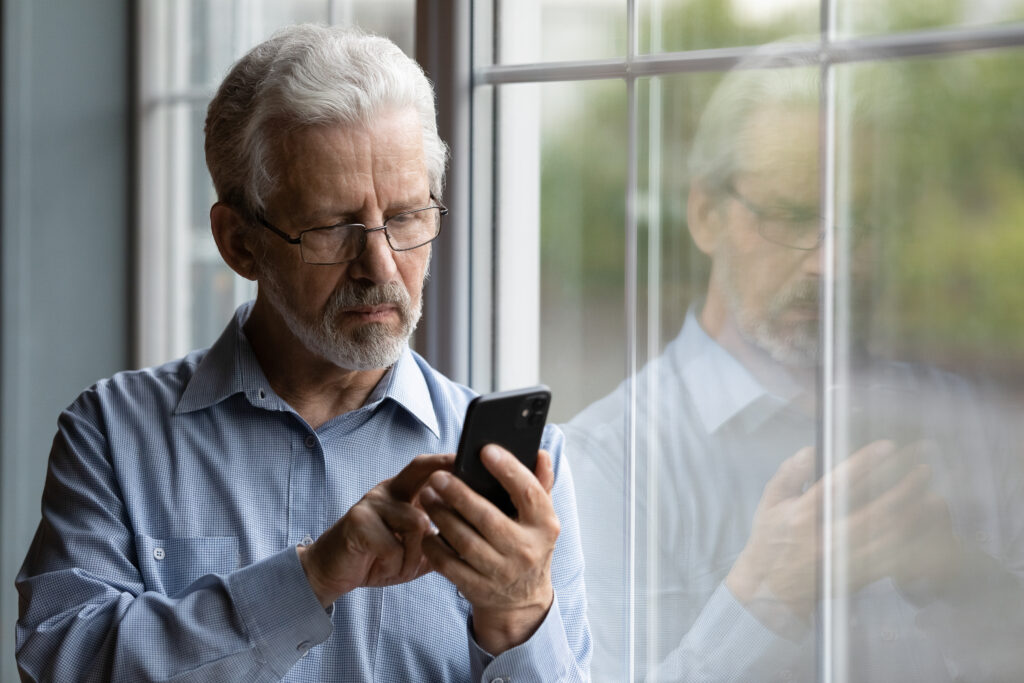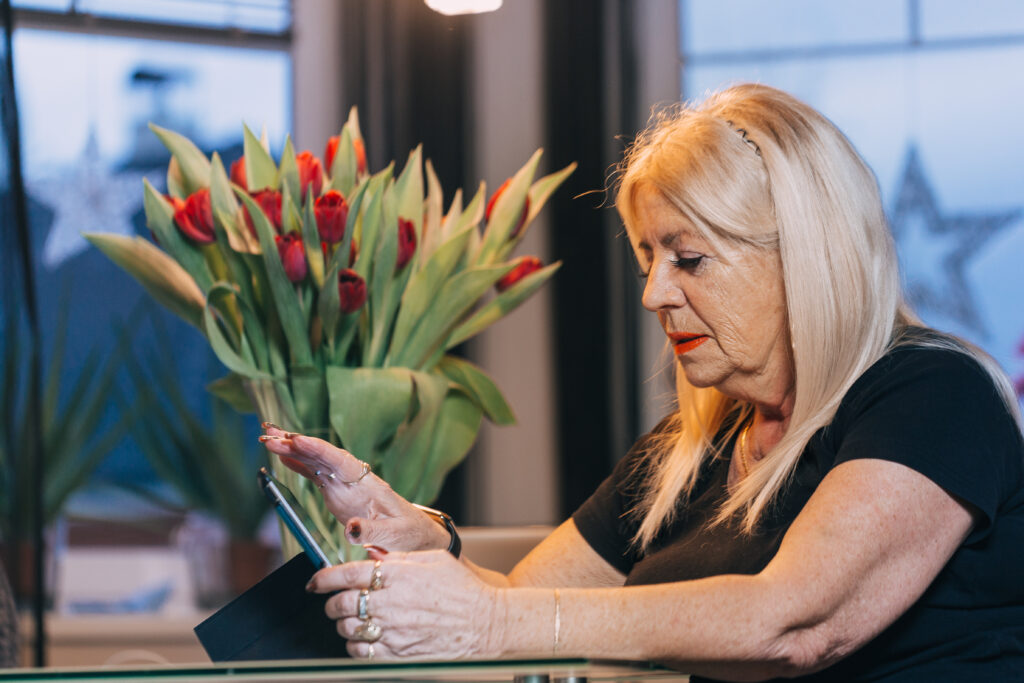Ignoring these signs could mean your loneliness is deeper—and more dangerous—than you ever imagined.

You might look completely fine on the outside—smiling, keeping up appearances, maybe even showing up to social events. But underneath the surface, there could be a quiet emptiness growing stronger by the day. Loneliness doesn’t always show up the way people expect. It’s not just about being alone. Sometimes, it hides in habits we barely notice.
What makes loneliness so dangerous is how easily it can be dismissed or misread, even by the person experiencing it. These subtle behaviors might seem harmless at first, but they can reveal a deeper emotional hunger you’ve been ignoring. If you recognize yourself in any of these, your loneliness may be more serious—and more damaging—than you think.
1. You Overshare Personal Details with People You Just Met

Oversharing often feels like relief in the moment, as reported by Johnae De Felicis at Therapy for Black Girls.When you’re starved for connection, telling someone your life story can feel like you’re forming an instant bond. But that intimacy is usually one-sided and fleeting. You’re not really building a relationship—you’re pouring out your feelings to fill the silence in your life.
Afterwards, you might feel exposed or embarrassed, wondering why you revealed so much. This habit can backfire, leaving you more isolated than before. The deeper issue is the craving to be seen and understood, which drives you to take emotional shortcuts. It’s not just a conversation—it’s a cry for closeness that rarely gets answered the way you need.
2. You Constantly Check Your Phone Even When There’s Nothing New

You’re not just looking at your phone—you’re hoping. Every time you refresh your notifications, you’re reaching for a sign that someone out there is thinking of you, Vinaya of Medium.com stated. It’s not about boredom; it’s about trying to soothe a gnawing feeling of emptiness that doesn’t go away with silence.
This habit becomes more compulsive when loneliness takes root. You might not even realize how much time you spend checking and rechecking apps. It gives you the illusion of connection, but that quick dopamine hit fades fast, leaving you with the same ache you started with. And the longer it goes on, the more detached you feel from the real-world relationships you actually need.
3. You Keep Busy to Avoid Sitting Alone with Your Thoughts

At first, it looks like drive or ambition. You’re productive, always in motion, juggling tasks like a pro. But when your busyness is really a smokescreen to avoid the quiet, that’s when it becomes a red flag. Stillness might bring up emotions you’d rather not face, so you keep moving just to avoid yourself.
The danger is that you might never stop long enough to realize how profoundly lonely you’ve become. And the more you ignore the emotional weight of your isolation, the more it compounds, experts at Oxfor Review mentioned. Eventually, even the achievements and checklists won’t feel like enough. That relentless motion isn’t fixing the problem—it’s just distracting you from it.
4. You Avoid Deep Conversations and Keep Things Surface-Level

You might think you’re protecting yourself by staying in the shallow end of conversations. Small talk is safe. It keeps things light, free from vulnerability or risk. But over time, it creates a barrier between you and others—one that gets harder and harder to cross.
Even when you crave meaningful connection, fear of being judged, dismissed, or misunderstood can make you pull back. You might be surrounded by people but still feel miles away emotionally. When you habitually dodge real talk, loneliness grows in the gaps left by all the things you never said but desperately wanted to.
5. You Spend Too Much Time on Social Media Comparing Yourself to Others

Social media often paints an airbrushed version of life, where everyone looks happy, connected, and fulfilled. When you’re feeling lonely, scrolling through these curated moments can feel like rubbing salt into a wound. It’s like watching a party you weren’t invited to, day after day.
Instead of making you feel closer to others, it can deepen your sense of disconnection. The comparisons creep in—you wonder why your life doesn’t look like theirs. You start believing that you’re the only one feeling this way. But in truth, what you’re chasing online is the very thing you need offline: genuine human connection, unfiltered and real.
6. You Feel Left Out Even When You’re with Friends

It’s a jarring kind of loneliness—being in a room full of people and still feeling completely alone. You laugh when they laugh, join the conversation, but deep down, you feel like you’re just going through the motions. You don’t feel seen or truly included.
This kind of emotional isolation can be the hardest to admit. On the surface, everything looks fine. But internally, you feel like a ghost in your own life. You might start questioning if you’re just being too sensitive, but the truth is, loneliness can distort your perception of belonging and convince you you’re not wanted—even when you are.
7. You Often Say “I’m Fine” When You’re Definitely Not Fine

It’s the most common lie people tell—“I’m fine.” It slips out automatically, even when your chest feels heavy and your eyes are holding back tears. Saying you’re okay feels easier than trying to explain the tangled mess inside.
But each time you say it, you push away a chance for real connection. People can’t support you if they don’t know you’re struggling. And when loneliness convinces you to keep wearing the mask, it deepens the disconnection from others—and from yourself. Eventually, “I’m fine” becomes your emotional prison, locking you inside your own silence.
8. You Attach Quickly to New People Who Show You Attention

Sometimes, just a little bit of kindness can make you feel like someone finally sees you. You latch on, hoping they’ll be the answer to your loneliness. But this emotional fast-forward often leads to disappointment. It’s not about love—it’s about needing someone to fill an emotional vacuum.
You might overlook red flags or rush into relationships that aren’t truly healthy, just to avoid the feeling of being alone. When the other person pulls back or doesn’t reciprocate, the loneliness returns even stronger. The pattern keeps repeating, and each time it leaves a bigger dent in your confidence and trust.
9. You Spend Too Much Time Replaying Embarrassing Moments in Your Head

Loneliness can magnify even the smallest social slip-ups. You replay awkward conversations, wondering if you sounded weird or looked stupid. It’s not just insecurity—it’s your brain trying to find reasons for why you feel so out of place.
Without close connections to give you grounding and reassurance, your mind spirals. You become your harshest critic, constantly dissecting everything you said or did. This inner loop of shame and self-doubt only deepens the isolation, pulling you further away from the compassion and understanding you actually need.
10. You Feel Drained After Social Interactions Instead of Fulfilled

Not all socializing is fulfilling. Sometimes, when you’re disconnected inside, even being around others doesn’t help. You smile, you nod, you make small talk—but none of it touches the place where the loneliness lives. So when the night ends, instead of feeling energized, you just feel more alone.
It’s not that you don’t want connection—you just need something more real than what you’re getting. Empty conversations and performative interactions don’t fill your emotional tank. What you truly crave is deep, honest connection—and until you get that, every social moment feels like work instead of nourishment.
11. You Make Self-Deprecating Jokes to Hide How You’re Really Feeling

Humor can be a powerful coping mechanism, but it can also be a mask. When your go-to is making fun of yourself, it can signal something deeper. You’re making jokes to deflect attention from your real pain. You’re laughing so no one sees the sadness underneath.
This habit can also confuse people into thinking you’re okay. They laugh with you, not realizing you’re quietly asking for help in the only way you know how. But every time you make yourself the punchline, you reinforce the belief that your feelings aren’t worth taking seriously. Over time, even you start to believe it.
